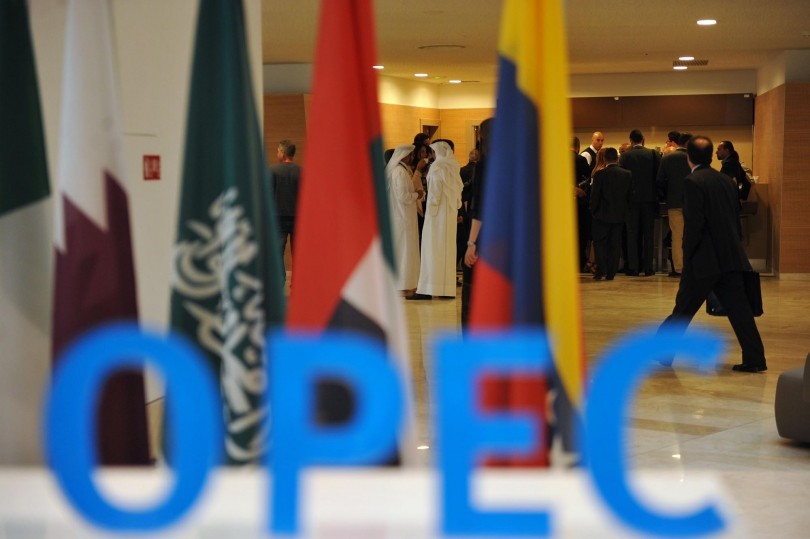Popular Reads
Top Results
Can't find what you're looking for?
View all search resultsPopular Reads
Top Results
Can't find what you're looking for?
View all search resultsAngola leaves OPEC in blow to oil producer group
Angola's Oil Minister Diamantino Azevedo said the Organization of the Petroleum Exporting Countries no longer served the country's interests. It joins other mid-sized producers Ecuador and Qatar that have left OPEC in the last decade.
Change text size
Gift Premium Articles
to Anyone
A
ngola said on Thursday it would leave OPEC in a blow to the Saudi-led oil producer group that has sought in recent months to rally support for further output cuts to prop up oil prices.
Angola's Oil Minister Diamantino Azevedo said the Organization of the Petroleum Exporting Countries no longer served the country's interests. It joins other mid-sized producers Ecuador and Qatar that have left OPEC in the last decade.
"We feel that ... Angola currently gains nothing by remaining in the organisation and, in defense of its interests, decided to leave," Azevedo was quoted as saying in a presidency statement.
International oil prices dropped by as much as 2.4 percent on Thursday as analysts said the departure raised questions about the unity of OPEC and OPEC+, the wider group that includes Russia and other OPEC allies. OPEC+ implements a new round of oil-output cuts from January to try to strengthen the market.
"Prices fell on concern of the unity of OPEC+ as a group, but there is no indication that more heavyweights within the alliance intend to follow the path of Angola," UBS analyst Giovanni Staunovo said.
Angola's announced departure follows a protest from Angola about OPEC+'s decision to cut its output quota for 2024. The dispute helped to delay OPEC+'s last policy meeting in November and its agreement on new output curbs.
"This shows that there is no consensus within OPEC itself and this was for some time now," Ali Al-Riyami, former marketing director general at Oman's energy ministry, said.
"There will be consequences no doubt about it, but I don't think others (countries) will follow."
Nigeria is another African OPEC member that has been trying to boost output and has been struggling to meet its quota. At the November meeting, it received a higherOPEC+ target for 2024, although lower than it had sought, restricting its ability to increase production should it be able to do so.
OPEC did not reply to a request for comment.
Three OPEC delegates who spoke on condition of anonymity said Angola's decision to leave came as a surprise, as they had expected the dispute over Angola's quota to blow over.
Angola, which joined OPEC in 2007, produces about 1.1 million barrels of oil per day, compared with 28 million bpd for the whole group.
Angola's departure will leave OPEC with 12 members and crude oil production of about 27 million bpd, some 27 percent of the 102 million bpd world oil market.
This further reduces OPEC's share of the world market, which stood at 34 percent in 2010.
As well as the exit of some members, OPEC and OPEC+ decisions to cut production and the rising output of non-OPEC countries including the United States have reduced its market share.
Brazil is expected to join OPEC+ in January but will not take part in the group's coordinated output caps.
Angola has been unable to produce enough oil to meet its OPEC+ quota in recent years, because of falling investment and a lack of big new oilfield developments.
It has struggled to reverse falling output since a peak of 2 million bpd in 2008 and expects to maintain current production into 2024, a senior government official said in October.
For Angola, oil and gas accounts for around 90 percent of total exports, an over-reliance the government has been seeking to reduce after the COVID-19 pandemic and lower global fuel prices hit the country's economy hard.
Several oil majors and independents operate in the southern African nation, including TotalEnergies, Chevron, ExxonMobil and Azule Energy, a 50/50 venture between Eni and BP.










